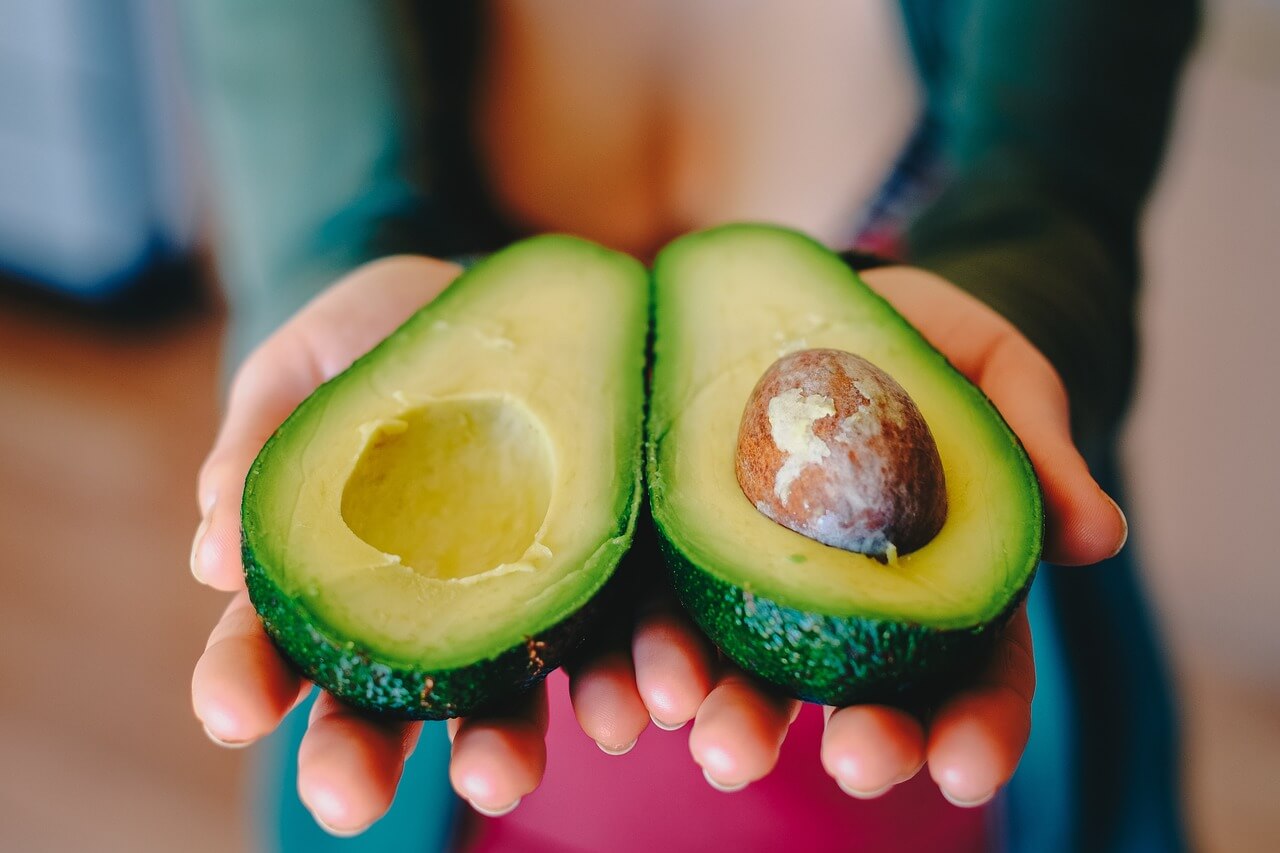Introduction
A. Importance of Avocado in Nutrition
Avocados are a highly prized fruit in the realm of nutrition and health. Widely known for their creamy texture and beneficial monounsaturated fats, they have long been a staple in many diets around the world[1]. Loaded with essential vitamins and minerals, avocados are a nutrient-dense food that provides an array of health benefits such as improved digestion, decreased risk of depression, and better heart health[2]. With a high fiber content and low carbohydrate count, avocados are also a favored addition to a number of weight management and diabetic-friendly diets[3].
B. Notion of Eating Avocado Seeds (Avocado Seed How to Eat)
A less commonly discussed aspect of avocados, however, is their large central seed or pit. The typical consumer often discards this seemingly inedible core, focusing primarily on the readily edible fles. Yet, there is a growing trend of health enthusiasts advocating for the consumption of avocado seeds. It is claimed that the pit, despite its hard exterior, could be the most nutrient-dense part of the fruit[4]. This raises the question, “avocado seed: how to eat?” – a topic this article aims to explore in depth.
Anatomy of an Avocado
A. Flesh of the Avocado
The flesh of an avocado is where most people’s knowledge begins and ends. This bright green, creamy layer beneath the skin boasts a rich profile of nutrients including high-quality fats, vitamins like C, E, K, and B-6, as well as riboflavin, niacin, folate, pantothenic acid, magnesium, and potassium. The flesh also contains lutein, beta-carotene, and omega-3 fatty acids – beneficial compounds that contribute to the overall health benefits of the fruit[5].
B. Avocado Pit (Avocado Seed)
Nestled within this nutritious fruit lies the avocado seed or pit. The pit is a sizable round object that accounts for approximately 13-18% of the avocado’s total weight. Contrary to popular belief, the seed is not a waste product. Several studies suggest that avocado seed could be an untapped resource of bioactive compounds, possessing antioxidant and antimicrobial properties[6]. This has led to an increased interest in its potential for human consumption and its role in a health-conscious diet.
C. Nutrient Dense Part: Comparing the Seed to the Flesh
Contrary to the common practice of discarding the avocado seed, research has shown that the pit may, in fact, contain a higher concentration of certain nutrients compared to the flesh. Some studies indicate that the seed houses 70% of the avocado’s total antioxidants, highlighting its potential as a highly nutrient-dense part. The pit is rich in phenolic compounds, which have been associated with a reduced risk of various chronic diseases. However, it’s important to remember that further studies are needed to fully understand the bioavailability of these nutrients and their direct impact on human health.
The Controversy Around Eating Avocado Seeds
A. Concerns Around Eating Avocado Seeds
While the potential nutritional benefits of avocado seeds are enticing, there are also concerns around eating avocado seeds. The primary concern is that they contain a class of chemical compounds known as tannins. High quantities of tannins can lead to constipation, stomach ache, nausea, and even liver damage[7]. Some also fear that the seeds may contain toxins such as persin, a fungicidal toxin that can cause health issues in certain animals, but its effects on humans are still unclear[8].
B. Advocates for Eating the Seeds
Despite the concerns, there are advocates for eating the seeds who point out their high fiber content and levels of beneficial antioxidants. Some believe that eating avocado seeds can help combat diabetes, inflammation, and cardiovascular disease due to their antioxidant and anti-inflammatory properties. In some cultures, avocado seeds have been used for their supposed health benefits in traditional medicine for years, which lends some anecdotal credence to these claims.
C. Current Scientific Consensus
However, the current scientific consensus suggests that while avocado seeds do contain potentially beneficial compounds, there’s a need for more research to better understand their nutritional value and potential risks when consumed by humans. Therefore, until more conclusive research is conducted, many experts advise against the regular consumption of avocado seeds and instead recommend enjoying the well-established benefits of the avocado’s flesh[9].
Preparation of Avocado Seed for Consumption
A. Avocado Seed Extracts
For those intrigued by the potential benefits of avocado seeds but wary of the controversy, commercially available avocado seed extracts can be a viable option. These products are often processed to remove potentially harmful substances and preserve the beneficial compounds, ensuring that the extract is safe for consumption[10]. However, as with any supplement, it’s essential to buy from a reputable source to guarantee product quality and safety.
B. Preparing the Seed at Home
- Using a Powerful Blender
The most popular way to eat avocado pits involves grinding them into a powder using a powerful blender. The seed should be thoroughly washed and dried before being placed in the blender. Once pulverized, the resulting powder can be added to smoothies or used as a supplement in meals[11].
- Roasting and Grinding the Seed
Another method is roasting and grinding the seed. The seed should be oven-roasted until it’s completely dry, then ground into a powder using a coffee grinder or similar device. This powder can be used in much the same way as the method above.
- How to Eat Avocado Pits
As the avocado seed has a bitter flavor, it’s generally not consumed directly but rather mixed with other foods to mask its taste. This can be as simple as stirring the powder into a green smoothie, incorporating it into a hearty soup, or using it as a salad topping. Despite the ease of these preparation methods, it’s crucial to remember that eating the seeds is not currently endorsed by most health professionals due to the lack of comprehensive safety and nutritional information.
Potential Health Benefits and Risks of Eating Avocado Seeds
A. Proclaimed Health Benefits
Despite the current lack of extensive human studies, proponents of eating avocado seeds have cited numerous potential health benefits based on in-vitro and animal studies. For instance, avocado seeds have been noted to possess antioxidant properties, which could help fight oxidative stress in the body. The seeds have also shown anti-inflammatory effects, which can be beneficial in managing chronic conditions like arthritis.
Moreover, the seed extracts have demonstrated antimicrobial activity against various pathogens, including E.coli and Staphylococcus. Some in-vitro studies even suggest the seed’s potential anti-cancer properties due to its high phenolic content, though these effects have yet to be observed in humans.
B. Potential Risks and Precautions
Despite these potential benefits, the consumption of avocado seeds carries its own risks and precautions. As previously mentioned, the seeds contain tannins, which could cause digestive problems if consumed in large amounts. There’s also the concern about the presence of persin, a natural fungicide in avocados that can be toxic to animals and potentially to humans.
Also, people with allergies to avocados may want to avoid eating the seeds, as they could potentially cause an allergic reaction. Finally, because the seed is quite hard, it poses a risk of dental damage if not properly prepared.
In conclusion, while the potential health benefits of avocado seeds may be promising, more research is needed to fully understand their effects on human health. Until such research is conducted, individuals should approach the consumption of avocado seeds with caution, if at all.
Incorporating Avocado Seeds into a Balanced Diet
A. Adding Seeds to a Green Smoothie
One of the most common ways to incorporate avocado seeds into your diet is by adding them to a green smoothie. As mentioned earlier, ground avocado seeds have a slightly bitter taste, which can be masked by the natural sweetness of fruits and the richness of other ingredients in a smoothie. A green smoothie with avocado seed can be a nutrient-packed way to start the day, and may provide potential health benefits from the avocado seed. However, due to the concerns and lack of comprehensive studies around avocado seed consumption, this should be done with caution and potentially under the guidance of a healthcare provider.
B. Other Ways to Use Ground Avocado Seeds
Ground avocado seeds can also be incorporated into various dishes. For instance, it can be added to homemade granola or energy bars for an extra nutrient boost. It can be used as a supplement in baking, sprinkled over salads, or mixed into yogurt or oatmeal. It can also be brewed into a tea, used as a spice rub for meats, or mixed into sauces and dressings. However, it’s essential to note again that while these uses are possible, they should be considered in the context of the potential risks and lack of definitive research supporting the consumption of avocado seeds[12].
Conclusion
A. Weighing the Pros and Cons of Eating Avocado Seeds
Given the information available, it is clear that the issue of eating avocado seeds is a complex one. On one hand, some studies suggest that avocado seeds may have potential health benefits due to their antioxidant, anti-inflammatory, and antimicrobial properties[13]. On the other hand, there are also potential risks associated with their consumption, such as digestive problems and the presence of potentially toxic compounds like persin.
In addition, it’s important to note that much of the research on avocado seeds’ health benefits has been conducted in vitro or in animal studies. This means that these findings may not necessarily translate to humans. As such, while these studies are promising, they should not be taken as definitive proof of the benefits of eating avocado seeds.
B. Personal Decision: To Eat or Not to Eat the Seeds
Given these considerations, the decision to eat avocado seeds ultimately lies with the individual, ideally in consultation with a healthcare provider. If one chooses to consume avocado seeds, it’s recommended that they be prepared properly, such as grinding them in a powerful blender, to avoid potential dental damage. Also, consumption should be done in moderation due to the potential risks involved[14].
In summary, while the avocado seed is a nutrient dense part of the fruit and may offer potential health benefits, more research is needed to understand the full extent of these benefits and any associated risks. Therefore, consumption of avocado seeds should be done cautiously and with full awareness of the current scientific understanding.










